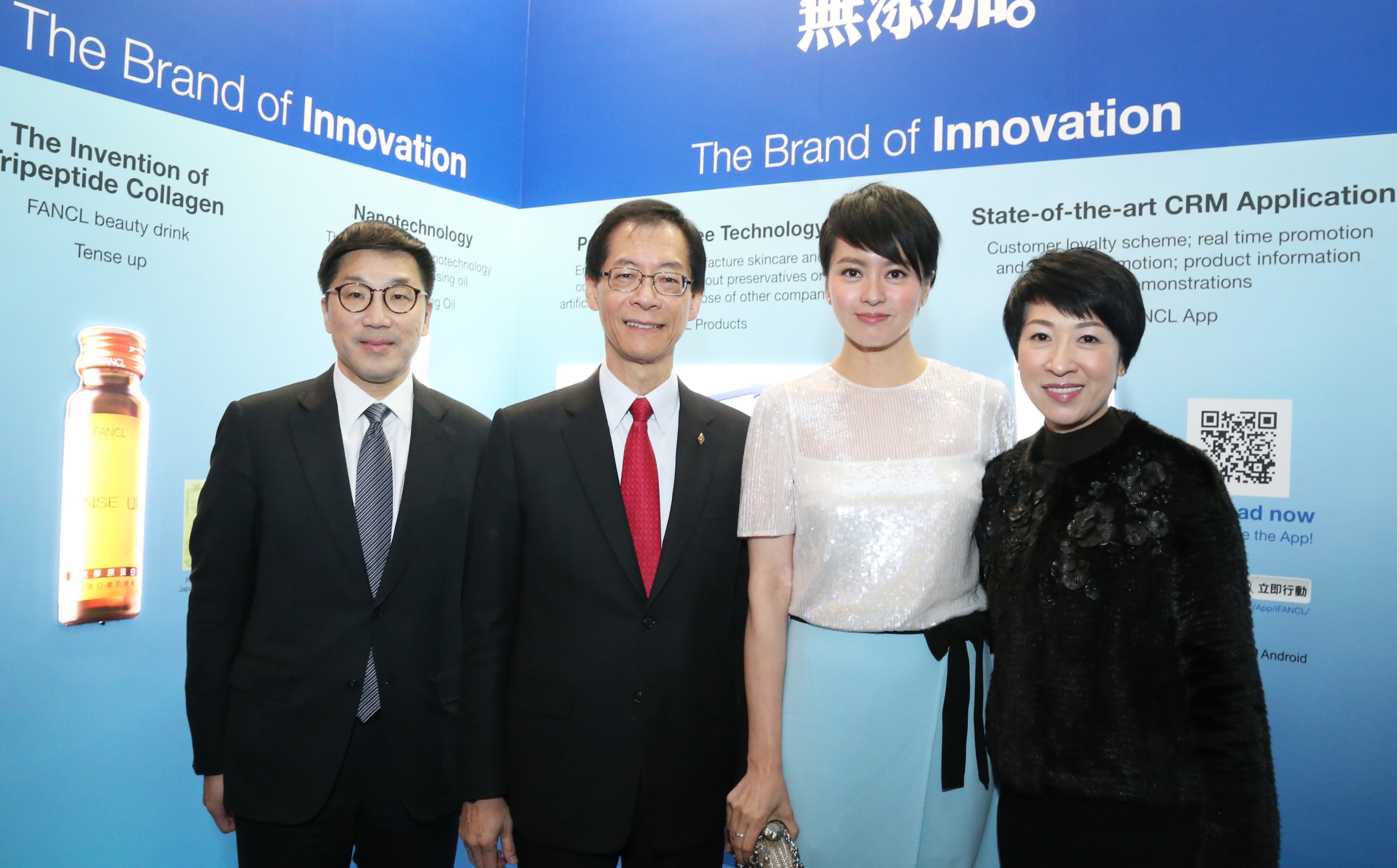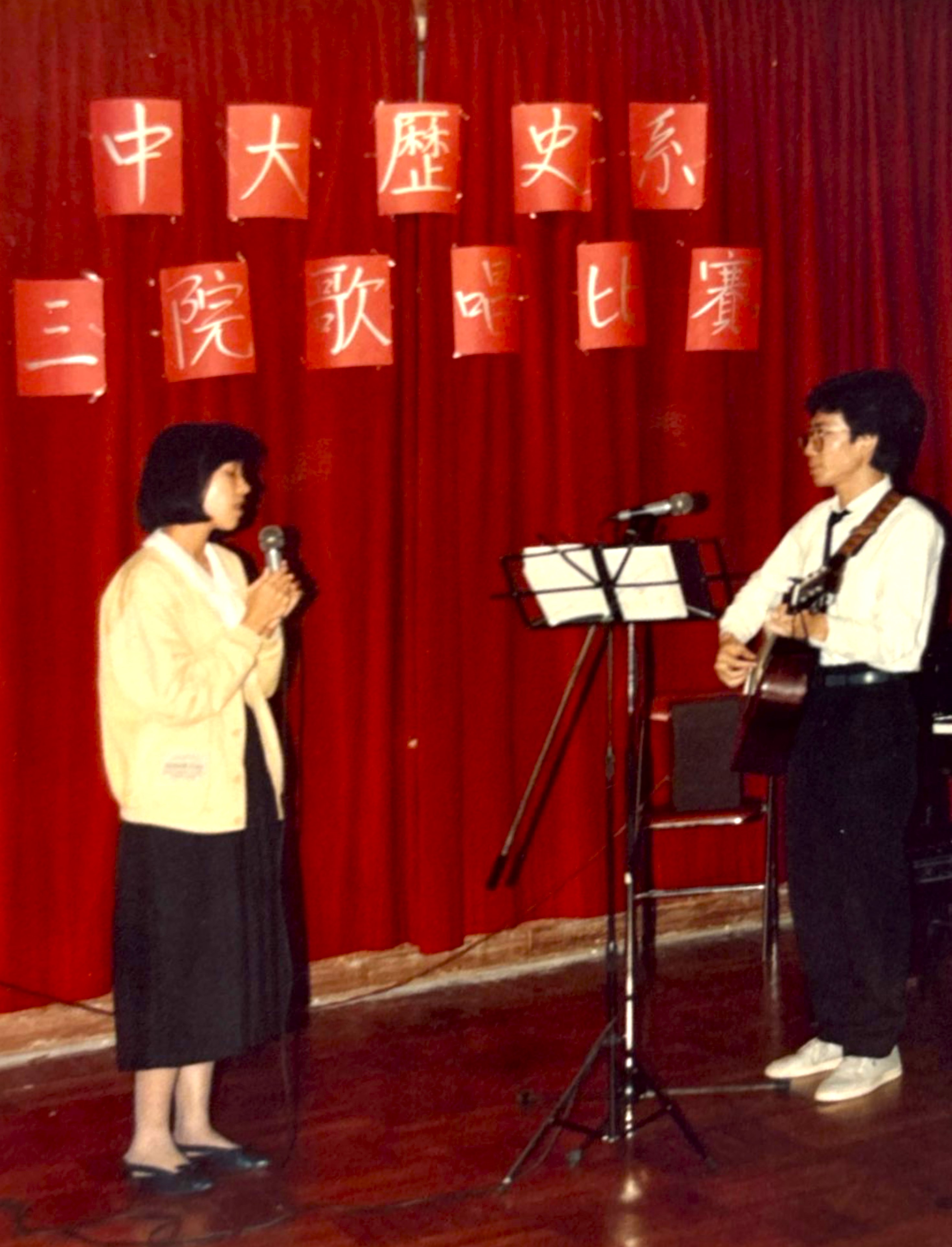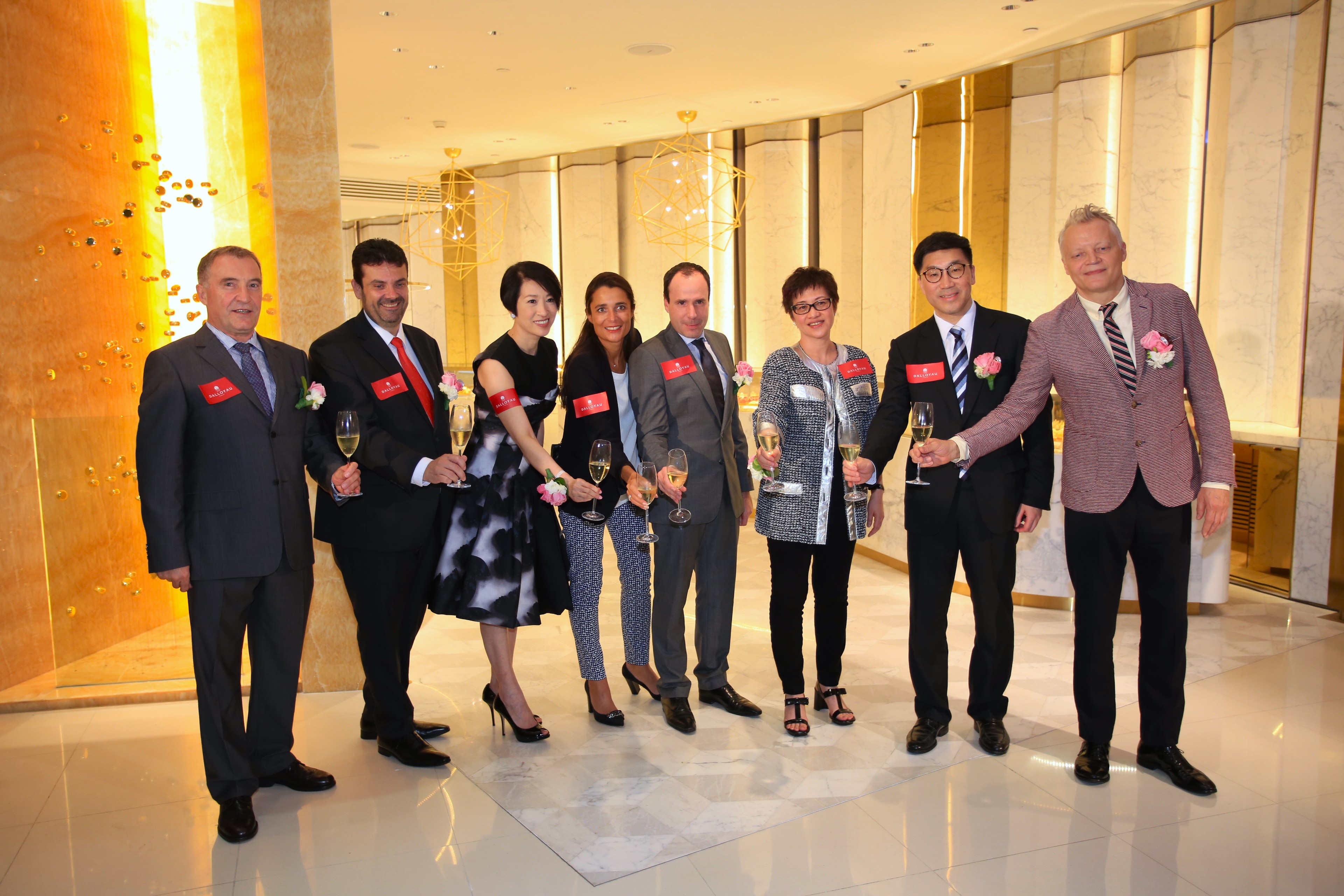
Turning a passion into a career is no easy feat, but Michelle Ma (88/NA/History) is one of the lucky few who managed to do just that. From fashion and skincare to gourmet cuisine, her interests have always led the way — and with dedication and perseverance, she has transformed those interests into a successful career. She was instrumental in bringing FANCL to the Greater China region and later introduced French gastronomy to Hong Kong. Seeing today's youth eager to dive into entrepreneurship, Michelle is encouraged but also offers some advice: "That is a great mindset, but if they are still figuring out their strengths, capabilities and passions, it is okay to start with a job. Let it be a training ground to build communication, mindset, and time management skills. Then launch when the timing is right,” she said. For Michelle, finding the right team is just as important as having a great idea. She said, "an idea without execution will not get far. I live by FANCL's 'less is more' philosophy — bring in professionals to do what they are best at, give them space to focus, and you will get the best out of your team."
Many students shy away from studying history for fear of rote memorisation. Michelle was lucky — she had an inspiring history teacher in secondary school who sparked her love for the subject. Michelle said, "she helped me realise history is not about memorising facts. She taught us to analyse and compare, to imagine connections between events. It trained me to 'see the future through the eyes of the past.' We focused on critical thinking, which helped me do well in exams and led me to major in History at CUHK."

Outside of history, Michelle developed a strong interest in Japanese culture. "In my second year at CUHK, I visited Tokyo, Shinjuku and Shibuya. It felt like stepping onto another planet — I was fascinated by the energy and modernity of it all." But she quickly realised that to truly understand the culture, she needed to learn the language. So she enrolled in an intensive Japanese course during her third-year summer break. "It was a packed six-week programme that covered a full academic year's curriculum. We had three hours of classes in the morning and three more hours of review in the afternoon. It gave me a solid foundation. In my final year, I took another full-year course and that intensive training really expedited my Japanese skills."

While studying history in the University, Michelle chose to take a broad approach — reading across different eras and knowing full well she wasn't aiming for a career in teaching or museum work. "By the time I graduated, I had two job offers — one in finance sales and one in fashion buying. The finance role seemed promising, but I had a strong passion for fashion, so I went with the latter. The pay was only half of a teaching salary, but I felt that enjoying the work made it easier to learn and grow." Michelle started out at an American company handling menswear buying. She recalled, "starting with menswear was actually a good thing — simpler categories such as shirts and t-shirts made it easier for a newcomer to learn the ropes and build a strong foundation."
By chance, a colleague who knew she spoke Japanese spotted a job ad for someone to buy Japanese fashion. The colleague encouraged her to apply — and she got the job. She said, "I was really excited because it gave me direct access to cutting-edge Japanese fashion. I worked with iconic brands like Issey Miyake and Junko Shimada, who were huge players in Hong Kong in the '90s. I learnt about Japan's famously meticulous 'shiyōsho (specification sheet) culture' where every detail was documented, which I found intriguing." This experience did not just expose Michelle to high-end fashion — it also introduced her to a mentor who would shape her future. Michelle recalled, "One of my Japanese bosses noticed my passion and invited me to co-found a trading company. We helped Japanese brands find manufacturers in China, and I had a front-row seat to Hong Kong’s garment industry at its peak."
After nearly eight years in the fashion industry, Michelle found herself frequently traveling to Japan for business — and it was on one of those trips that she first encountered FANCL. "I have always had sensitive skin and had been constantly switching skincare brands since I was young. A Japanese friend introduced me to FANCL, and that was when I first heard of the brand," she said. The one who witnessed the biggest change was her husband. Michelle added, "He is a structural engineer, and by age 28 he was already leading projects at the UK-based building consultant, ARUP Group Limited. He knew how I struggled with my skin — always changing products, constantly seeing dermatologists. But after using FANCL, he saw how those problems gradually disappeared. I explained to him that most skincare products contain preservatives, additives, and mineral oils — all of which can irritate skin." As a data-driven engineer, her husband decided to test it himself. She said, "He actually flew with me to Japan, and we spent half a day at a FANCL store, trying products and asking endless questions. When we returned to Hong Kong, he discussed everything seriously with me — analyzing the theories and product information from an engineer's perspective. We realized there was really nothing else like it on the market in Hong Kong. That's why we decided to turn this into a business opportunity."

Their first store opened at Times Square in Causeway Bay — a deliberate choice. Causeway Bay is a magnet for young people who are open to new things. Starting with a trend-sensitive demographic made it easier for the brand to gain acceptance. Starting from scratch came with challenges, Michelle said, "No one in Hong Kong had heard of FANCL at the time. It had only just opened its first retail shop in Japan and mostly relied on mail-order sales. Even though Hongkongers loved traveling to Japan, one would not easily spot FANCL in stores. Worse still, their product philosophy was unfamiliar. Many people assume that preservatives help keep products fresh. We had to completely reverse that mindset — explain how preservatives can actually harm the skin, why our products are sealed, have expiry dates, and come in smaller volumes. We invested heavily in educating consumers." There were other hurdles too — sky-high rental costs and the need to train the staff as a new generation of beauty advisors who could understand and guide customers through their unique skincare needs. "Looking back, it is amazing how we managed to juggle so many things at once. But at the time, we just kept going and gave it our all," Michelle said.
Thankfully, both Michelle and her husband are fast learners. Through hands-on effort and level-headed analysis, they quickly grasped the market's needs. Within just three years, the business turned profitable — allowing them to scale up and invest in marketing. To better educate the public, Michelle and her team even created a skincare magazine. Michelle said, "we were probably the first — and only — brand at the time to publish in-depth explanations of skincare ingredients and principles in a magazine format. I even translated FANCL's Japanese content into Chinese myself, inventing a lot of terminology on the way. For example, the process where skin cells renew every 28 days — the Japanese version just used the English word 'turnover,' but I translated it as 'skin renewal' so it would be more relatable. Terms like 'oxidation' and 'antioxidation' also came from that period — and they are still widely used today."
Michelle credits her CUHK History education with giving her an edge in cross-cultural business. She said, "I studied Chinese history from Tang, Song, Ming, and Qing dynasties, as well as Western medieval history, the World Wars — even ancient and Meiji-era Japan. Understanding a culture's history helps you understand its people. And being able to communicate in Japanese and grasp their mindset made me feel less like an outsider. That trust was crucial from the very beginning." The exceptional performance opened the door to ongoing collaboration. Michelle recalled, "when we delivered results beyond their expectations — particularly in Hong Kong, a market entirely unfamiliar with their brand — it significantly strengthened the mutual trust." As the partnership deepened, FANCL eventually entrusted Michelle with developing the China market. At that time, all the major international brands had already entered the mainland. Yet, as she recalled, “that actually helped us. Customers had already experienced different products and were more open to learning. With our educational approach, they understood our message even better than Hong Kong consumers did. Within two years, the FANCL name had become well known."

Looking back, Michelle says her path has been shaped by both passion and luck. "I have always loved beauty, so starting in fashion, then moving into skincare and cosmetics felt like a natural progression. Learning about ingredients and how to care for my skin gave me a stronger sense of self and discipline.” As for staying in shape, Michelle laughed, "I am such a foodie that I have to keep exercising." She credits CUHK for that too — "I took a tennis class in Year 1, and it actually became a shared hobby with my husband while we were dating. These days he has moved on to golf, but I still take lessons and play regularly," Michelle said.
Her love of food even led her to open a restaurant. Michelle said, "my work was so intense, I needed something enjoyable to balance it out. During business trips, I would visit the best restaurants in each city and always thought, 'Wouldn't it be great if we had this in Hong Kong?'" She initially considered opening a kaiseki restaurant, but it proved difficult — top Japanese chefs rarely leave Japan, and authentic kaiseki relies on local ingredients and water. Then a French friend introduced her to DALLOYAU, the iconic pâtisserie. Her husband's love for desserts sparked a new idea. After all, selling sweets was still a form of retail, Michelle reasoned, so why not explore it?
"We found out that while chocolates could be imported from France, the cakes had to be made fresh in Hong Kong — which meant we had to set up our own workshop from scratch. Then we learnt DALLOYAU also had a dining arm. To truly represent a brand with over 100 years of history, we decided to open a full restaurant in Hong Kong. It really was a step-by-step journey." Michelle said.

Though she had plenty of fine dining experience as a customer, Michelle admits she was a complete beginner when it came to running a restaurant. "Luckily, by then FANCL had expanded to over 50 cities, and most operations were automated. So we adapted those systems to the restaurant, especially for ingredient cost control. Now chefs can instantly see their budget in real time, which frees them up to focus on creativity."

As a female entrepreneur, balancing work and family has been a constant juggling act. Michelle said, "my husband and I are both workaholics. We thrive on the sense of achievement work gives us. Even when we are on vacation, we are thinking about ways to improve the business." Their daughter was always independent and never needed much academic support. "But when she grew older, she told me she felt emotionally neglected, that I had been too focused on work and did not give her enough emotional support. If I could do it again, I would definitely prioritise her more and manage my time differently," she said. Still, Michelle believes female entrepreneurs have unique strengths — especially in industries like skincare. "Many of our frontline staff and customers are women. I think I have a natural sensitivity to their needs, and that helps us connect better."
Reflecting on her CUHK days, Michelle says the analytical skills she gained from studying history still guide her daily life and business decisions. She said, "history trains you to think deeply and see beyond the surface. It shaped my values, gave me self-awareness, and helped me understand how the past informs the present. That perspective has influenced how I run my business and how I treat the people around me." She once dreamt of studying abroad, but says living at hostels in CUHK gave her a taste of that freedom. "Living on campus felt like being overseas — I had space to explore, reflect, and enjoy the peaceful campus. There was always a quiet corner to walk and think."
Michelle is deeply grateful for her university education, giving her a way to understand the world and laid the foundation for the future. She reflected, "one day, I read about scholarships in the New Asia College Journal and I thought it was time to give back. If I had not gone on that trip to Japan, I might never have seen what was possible. So I set up a scholarship to support students who want to study abroad or go on exchange — to broaden their horizons and help them shape their future." She also accepted an invitation to join the New Asia College Board of Trustees. "Honestly, I was not even sure what a trustee was supposed to do," she says with a smile. "But I believe in giving back, and if the college ever needs my help and I have the time, I will be there."
"CU Alumni Magazine" Video Interview: https://youtu.be/l6EHiQN_SkE (Chinese only)
Published on CU Alumni Magazine Issue 122 by Alumni Affairs Office 2025
Read online: CU Alumni Magazine Issue 122 (Chinese Version Only)
PDF: http://www.alumni.cuhk.edu.hk/magazine/202506/pdf/CUAM_202506.pdf
ISSUU: http://www.alumni.cuhk.edu.hk/magazine/issuu/